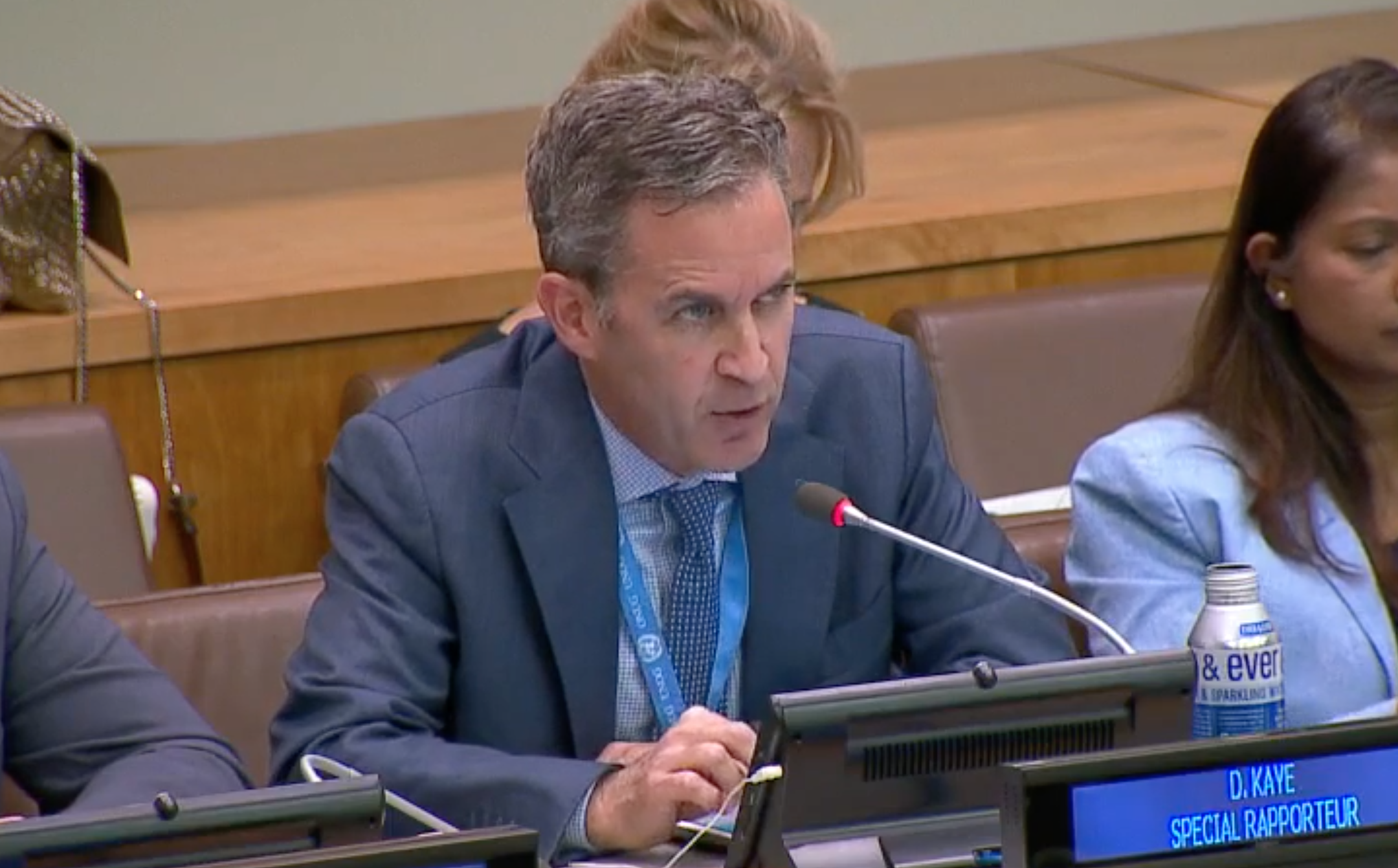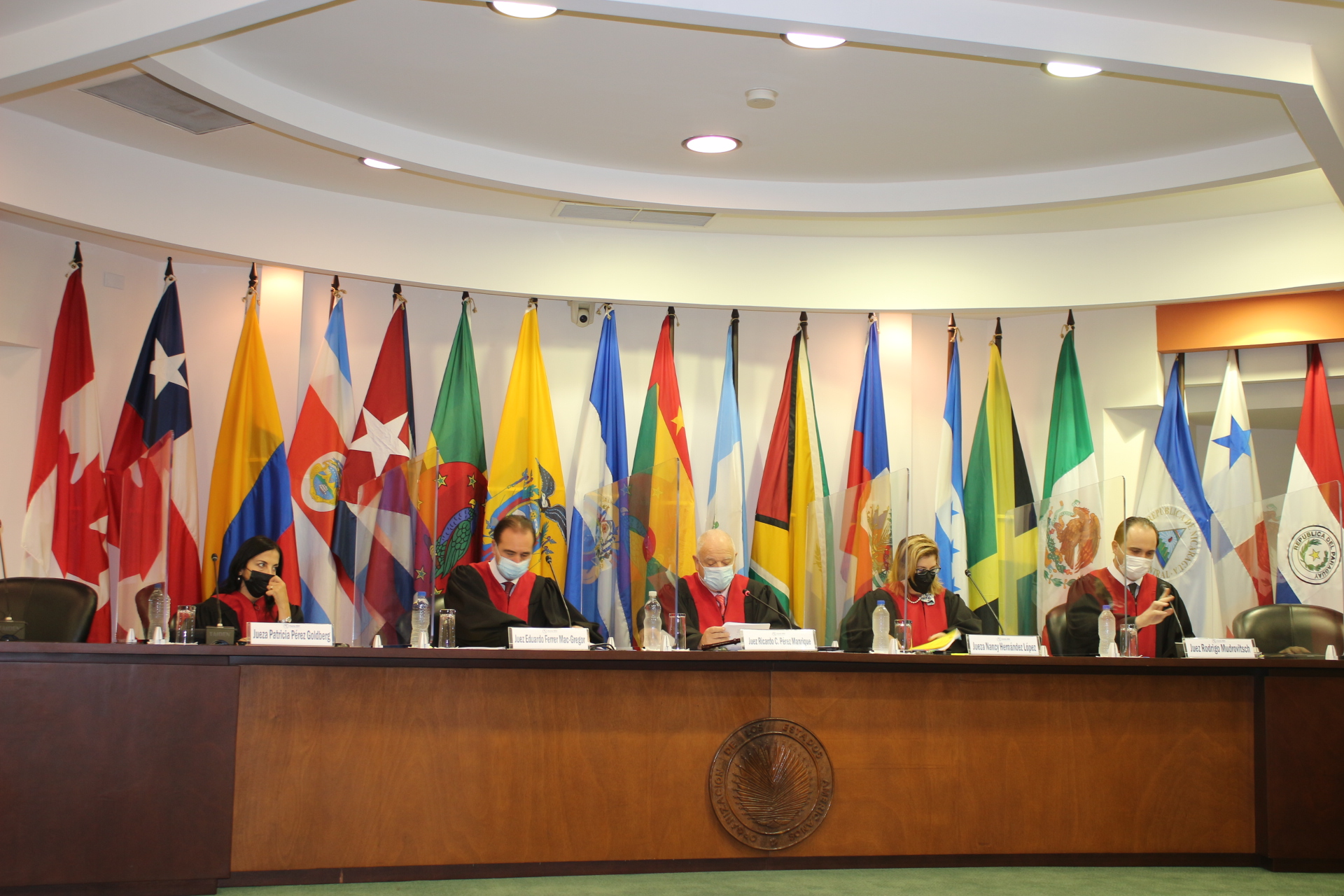On 21 October 2019, David Kaye addressed the UN General Assembly’s Third Committee on his report (A/74/486), which addresses how the lack of a legal definition of the term ‘hate speech’ has allowed governments to punish and silence otherwise lawful expression such as political dissent, criticism or religious disagreement, by labelling such expression as hate speech and thus illegal. ‘When the phrase “hate speech” is abused, it can provide ill-intentioned States with a tool to punish and restrict speech that is entirely legitimate and even necessary in rights-respecting societies,’ warned Kaye.
With particular attention to online expression, Kaye highlighted how States use internet companies such as social media platforms to limit online speech that would otherwise be protected under international human rights law. Kaye stressed that offline human rights protections must apply to online speech.
In the report and discourse, Kaye urged States to carefully define hate speech in line with international law, and resist criminalising speech except in the most exceptional circumstances.1 Kaye emphasised the critical role that internet companies play in maintaining human rights standards and encouraged them to adopt content moderation standards that respect the freedom of speech.
‘Space for citizens’ self expression is shrinking both online and offline. The lack of definition of hate speech is being exploited to unlawfully restrict open and rigorous debate’, says ISHR’s Zamzam Mohammed.
Many countries responded positively to Kaye’s report. More importantly, Iceland put the spotlight on 2018 being the deadliest year on record for journalists, with 99 journalists killed, 348 imprisoned and a further 60 held hostage. Emphasising attacks against journalists, States were reminded that it had been one year since the murder of Saudi Arabian journalist Jamal Kashoggi.
However, the conversation took a turn when the US criticised China for running a ‘surveillance state’, particularly in the Xinjiang region. ‘Unsurprisingly, China denied the US’ allegations and blamed them of practicing a double standard,’ says Mohammed. ‘We urge States to engage constructively in dialogue towards human rights protection, and not politics.’
1. Exceptional circumstances include only those provided by law and necessary to protect the rights or reputations of others, national security or public order, or public health or morals. A/74/48050 para. 6.
Contacts:
Zamzam Mohammed, [email protected]. Eleanor Openshaw, [email protected], +1 929 4267679




